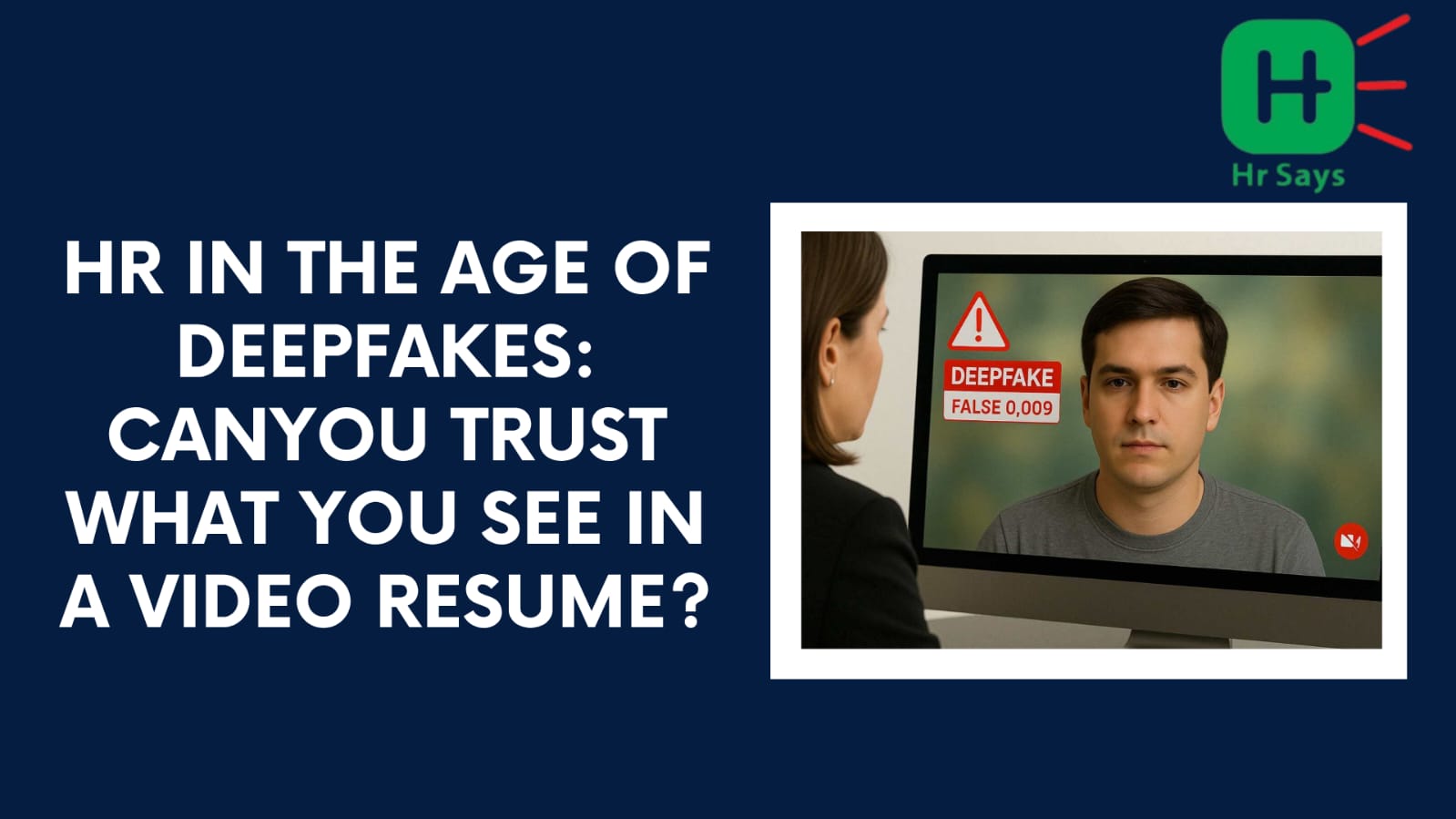Can a video lie? Not just bend the truth, but fabricate it—face, voice, tone, and all. In 2025, that’s no longer a question for science fiction. It’s a reality HR teams are slowly waking up to.
The Rise of the Perfect Candidate
A candidate smiles confidently. Their voice is clear. Their eye contact is perfect. But something feels… off.
In a world where AI can generate photo-realistic faces, mimic speech, and even match gestures, video resumes have become a tricky terrain. What used to be a tool for connection is now a tool for deception.
● Deepfake tools are now cheap, fast, and accessible.
● Freelancers offer AI-generated interviews on open marketplaces.
● Fake credentials, fake faces, and scripted confidence—all generated in minutes.
And HR is left holding the responsibility to filter the real from the manufactured.
Trust Is Being Rewritten
The hiring process relies on trust. Resumes can lie, but interviews used to show the truth. Now even facial expressions and voices can be faked with ease.
This doesn’t mean every video is fake. But it creates doubt, and doubt spreads fast.
● Is the voice AI-generated?
● Is the person even real?
● Was the interview rehearsed by a chatbot?
In a hiring landscape that already struggles with bias, now enters a new layer of confusion.
Operational Tensions in HR Teams
Many HR professionals were never trained to spot digital manipulation. And deepfakes don’t
look fake anymore.
Suddenly, hiring isn’t just about skills and fit—it’s about authentication. This brings a new set of
challenges:
● Should all video submissions be scanned for manipulation?
● Who pays for verification tools?
● Does flagging a deepfake open a legal can of worms?
Worse, over-policing may punish genuine candidates. But under-checking may let bad actors
slip through.
The Line Between Smart and Suspicious
Hiring tech is advancing too. New platforms claim to verify facial motion and voice integrity. But
no tool is perfect. And mistakes could cost both the company and the candidate.
So where does that leave HR?
Some are going back to basics: live interviews, in-person assessments, skill-based tasks. Others
are tightening digital policies and training teams in cyber-awareness.
Still, the pressure remains. Because in a world of perfect fakes, authenticity has become
currency.
Conclusion
Video resumes were once a way to stand out. Now they’re a reason to look twice.
HR must walk a careful line—open to innovation, alert to manipulation. Because when trust can
be faked, hiring isn’t just about talent anymore. It’s about knowing what’s real.
And that is a question no AI can answer for you.

 As deepfake technology gets smarter, HR faces an uncomfortable question: can hiring teams trust what they see in video resumes and interviews? The answer isn’t simple—and it’s changing faster than most are prepared for.
As deepfake technology gets smarter, HR faces an uncomfortable question: can hiring teams trust what they see in video resumes and interviews? The answer isn’t simple—and it’s changing faster than most are prepared for.








.jpeg)
.jpeg)

.jpeg)





.jpeg)



.jpeg)

.jpeg)



